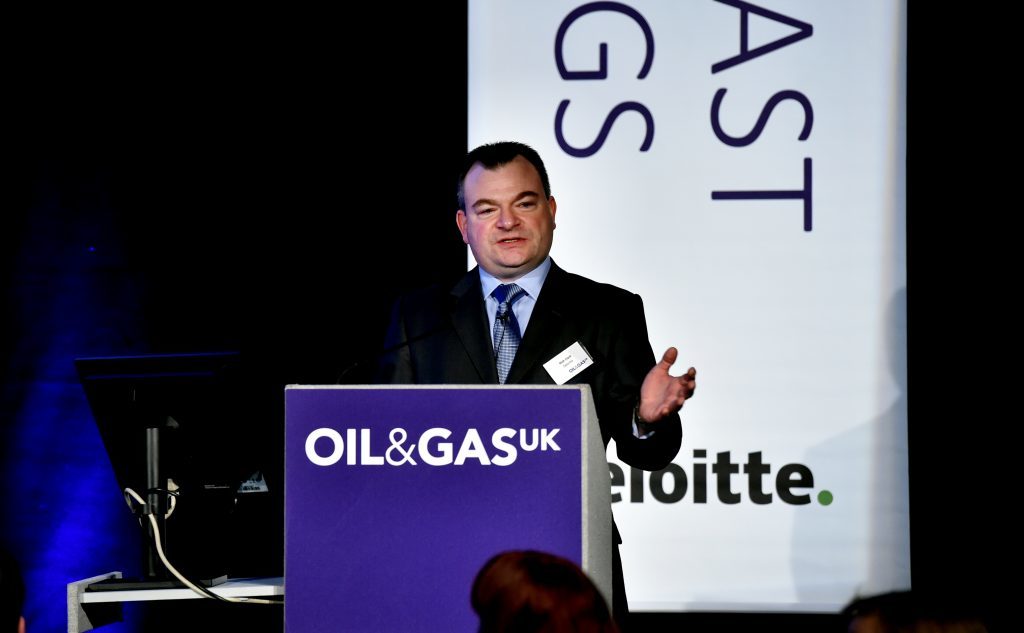
A director at Deloitte said yesterday that North Sea industry had made real progress in its collaboration drive, but urged companies to “go faster” to lock in the gains.
Nick Clark, Deloitte director, consulting, said the sector had been forced to adopt collaboration having gone through “a year of wait and see”.
Mr Clark was speaking at Oil and Gas UK’s breakfast briefing event at the Aberdeen Exhibition and Conference Centre.
Oil and Gas UK (OGUK) and Deloitte used the event to launch their 2017 UKCS Upstream Supply Chain Collaboration Survey.
A total of 95% of operators and suppliers said collaboration was an integral part of their day-to-day business, up from 86% in 2016.
And 43% of respondents said their collaborative efforts had brought success in 2017, compared to 27% in 2015.
The survey took in the views of more than 150 suppliers and operators.
Mr Clark said it was now “a given” that companies need to embrace collaboration.
He also said their efforts were starting to “bear fruit”.
He said operators are still leading the improvements and that cost management continued to be the main driver for collaboration.
However, tax and fiscal considerations have become a bigger factor.
Mr Clark said companies’ attitudes were “clearly in the right place” and that collaboration is no longer just a “buzz word”.
He said: “Now it’s about how we kick on and use what we’ve delivered so far. We mustn’t revert back to the less efficient ways of the past.
“Real progress has been made, but let’s go faster and lock those gains in.”
Steve Phimister, upstream vice president for the UK and Ireland at Shell, said collaboration and competition could co-exist in the North Sea.
Mr Phimister said combining both will help companies develop small fields and come up with strong area plans in the basin.
The Oil and Gas Authority describes area plans as frameworks which set out how oil recovery can be maximised in a particular geographical sector of the UKCS.
Mr Phimister also told the audience that he was “worried” about the prospect of supply chain rates going back up as oil prices improve.
He said the North Sea was already “behind the curve” in terms of competitiveness when compared with other basins around the global.
He said: “A situation where costs go back up does not work. Sharing rewards and upsides works, so we need to think about how we structure our work in future.”
Mr Phimister also echoed Mr Clark, saying North Sea industry had made progress on collaboration, but that the sector had to “kick on”.
“We cannot undo the good work of the last few years,” he added.
Commenting on the survey, Mariesha Jaffray, continuous improvement manager at OGUK, said: “The results demonstrate that for most operators and suppliers, collaboration is shifting from being an aspiration to a reality.
“The third successive improvement to the collaboration index score has been achieved despite the prolonged period of flux faced by the offshore oil and gas industry, with many companies still experiencing tough conditions.
“Industry in general has a long-standing record in working together towards shared goals and this survey shows our sector has taken the same approach.
“It also underlines the importance of OGUK’s Efficiency Task Force, which continues to seek out, promote and provide access to efficient and collaborative practice across the sector.”
Ms Jaffray added: “Through collaboration companies are able to reduce costs, share knowledge and maximise the economic recovery from the basin.
“We can speak with tentative confidence that these behaviours are the new normal.
“Provided these results are built upon, we have every reason to believe that the UKCS will become the most attractive mature basin in world with which to do business.”
Recommended for you

